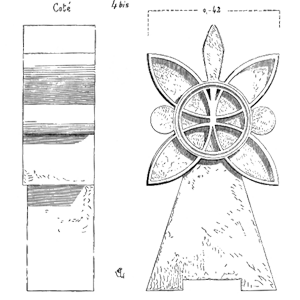
What is ‘fatigue’? … and no I don’t mean feeling ‘tired’.
podcast episode with speaker Chris Jackson
Many reliability engineers know what fatigue is (in addition to feeling tired). Fatigue is an example of a ‘failure mechanism.’ A failure mechanism is the physical, chemical or electrical process that results in failure. Fatigue is interesting in that it allows something to fail without it ever being exposed to stresses that are beyond its strength. How does this happen? Fatigue is based on cracks. Cracks magnify stresses at their tips. So cycling stresses can have the effect of incrementally (and sometimes very slowly) increasing the crack length at the tip. Fatigue has caused all manners of failures that have surprised us throughout the history of engineering. But now we have learned so much more about this really fascinating failure mechanism can cause steel, aluminium and other material to fail, even when the stresses they experience are tiny. Want to learn more about fatigue? And how you can help prevent it? Join us for this webinar.
This Accendo Reliability webinar was originally broadcast on 28 November 2023.

To view the recorded video/audio and PDF workbook of the event, visit the webinar page.
Additional content that may be of interest
Recognizing Basic Gear Fatigue Failure Patterns article
Part II: The 4 Basic Physical Failure Mechanisms of Component Failure: Fatigue & Overload article
Metal Fatigue Failure article
Metal Fatigue Failure Mechanism Accelerated Life Testing article
Norris-Landzberg Solder Joint Fatigue article

Fundamentals of FRACAS
This webinar introduces you to the basic elements of FRACAS. Plus, we examine a few failed programs so that you can avoid problems.

Fundamentals of Root Cause Analysis
Let’s discuss when you have sufficient understanding of a failure mechanism to implement a solution and a few common obstacles to avoid.

Essential Reliability Engineering Concepts
Let’s discuss the concept of failures along with a few other concepts universal to reliability engineering.

Preventing Moisture and Corrosion Damage
The goal is to educate the audience on options to prevent electronic equipment failure used in enclosed spaces from corrosion.

What is Fatigue?
Fatigue is interesting in that it allows something to fail without it ever being exposed to stresses that are beyond its strength.

So What is the Root Cause?
This webinar takes you through a framework to explore the understand the root cause of a failure, something we can do something about.

Focus on Failure Mechanisms
Let’s explore the many ways something can fail and how understanding failure mechanisms makes a difference.

Using Fault Trees to Conduct Root Cause Analysis (RCA)
Discover the power of root cause analysis with fault trees. Uncover the hidden causes of failure and improve your reliability process.




 Ask a question or send along a comment.
Please login to view and use the contact form.
Ask a question or send along a comment.
Please login to view and use the contact form.
Leave a Reply